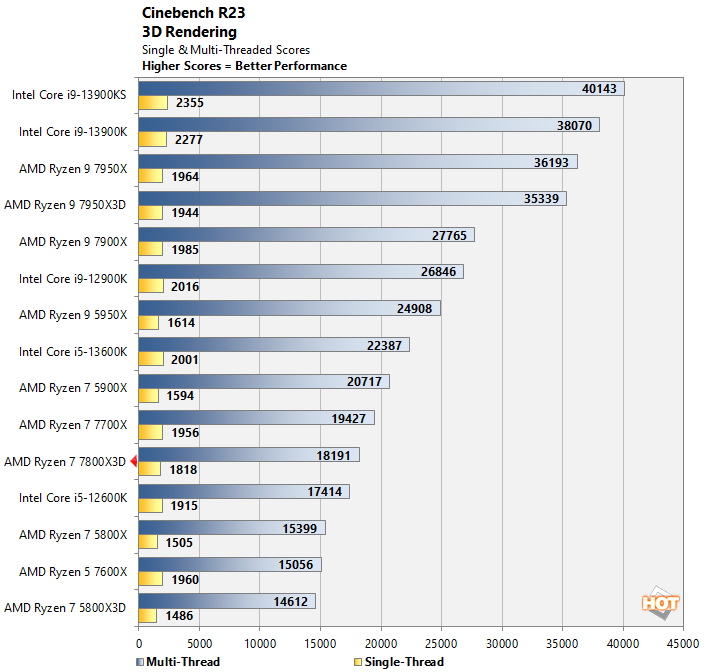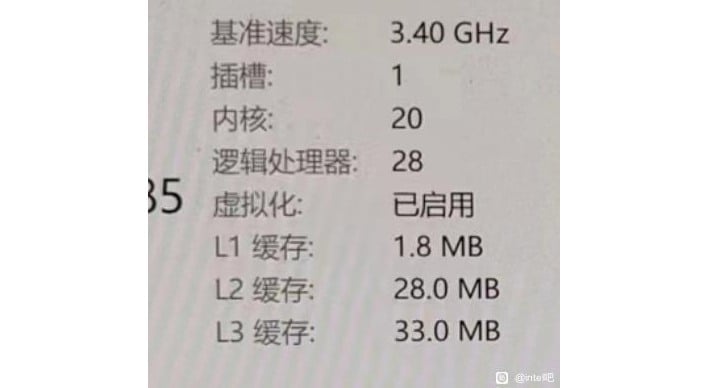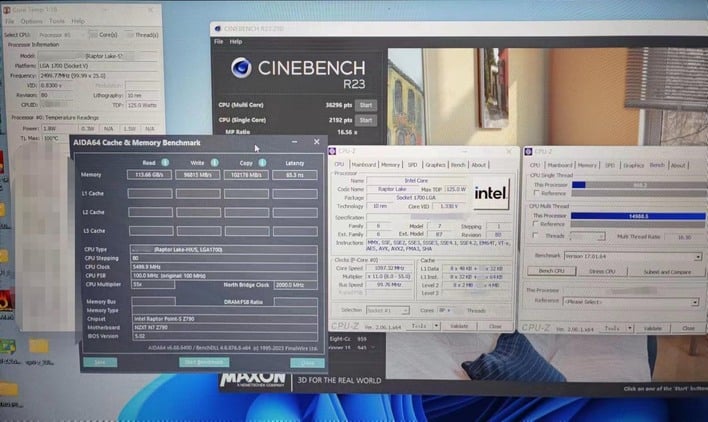By now,
we have a pretty decent idea of what's going to show up on the desktop for Intel's "14th-generation" Core CPUs: a refresh of Raptor Lake, using fundamentally the same cores with slightly higher clocks. It does look like Intel is doing the same thing with core counts that it did with the
lower-end 13th-gen parts, however. That means extra enabled cores at each level of the product stack.
We say that based on this new leak of what appears to be a Core i7-14700K CPU from frequent leaker Алексей,
better known by his Twitter handle @wxnod. In the leak, which consists of a single screen image, heavily-blurred, we can see benchmarks for Cinebench R23, CPU-Z, and the AIDA64 cache & memory benchmark.
Comparing the CPU-Z benchmark results, the scores represent a 5% uplift over the 13700K on a single-thread, while the multi-threaded benchmark gains nearly 21%. That's comparing against the aggregate scores over at the
x86.fr CPU-Z Validator because we don't typically use the CPU-Z benchmark for testing as we find it to be excessively synthetic and not particularly representative.
A benchmark that isn't synthetic is Maxon's Cinebench R23. It's a real-world test based on the renderer used in Maxon's actual products that it sells for money. We haven't tested the Core i7-13700K, but comparing these leaked results
against our numbers, the Core i7-14700K beats everything we have short of a Core i9-13900K. That includes AMD's 16-core Ryzen 9 7950X.
That result shouldn't be too surprising considering that the Core i7-14700K seems like it will gain an additional E-core cluster over the last-gen part, giving it a total of 20 cores (8P+12e) and 28 threads. Алексей blocked out the core counts of the processor he was testing for whatever reason, but thankfully, a user over on Baidu posted a screenshot of the Windows Task Manager (below) showing exactly that core count. It also has the correct cache totals we would expect: 28MB of L2, and 33 MB of L3.
The next generation of Intel desktop CPUs is shaping up to be thoroughly unexciting if you've already got a 13th-gen or Ryzen 7000 CPU—the same silicon with an extra 100 MHz of clock rate doesn't exactly whet our appetites. For folks who don't have a current-gen system, though, it's possible that
the last monolithic desktop CPUs from Intel could offer excellent value if the extra E-cores spill down the product stack. We'll see when these chips release later this year.





